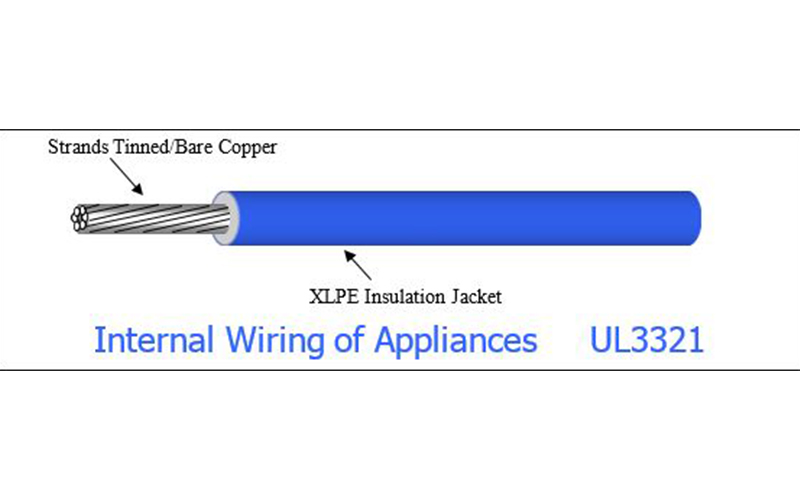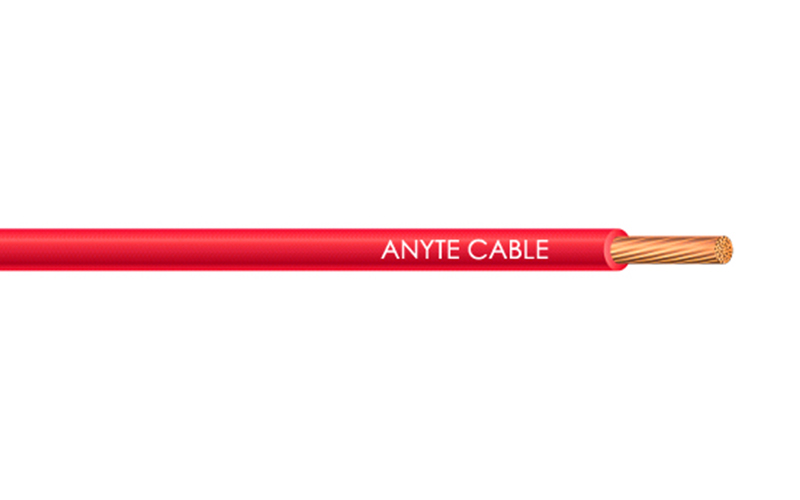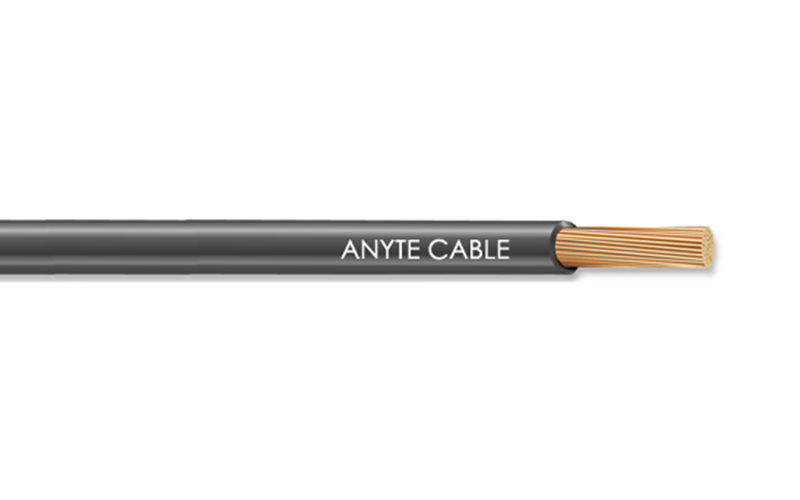I. Introduction
A. Silicon cables, also known as silicone cables, are cables made from high-quality silicone rubber. They are known for their exceptional flexibility, heat resistance, and durability. They are widely used in various industries, including automotive, aerospace, and manufacturing, due to their unique properties and benefits.
B. Understanding the key features and benefits of silicon cables is crucial for industries that require reliable and durable wiring solutions. These cables offer several advantages over traditional cables, including high temperature resistance, excellent electrical insulation, and resistance to chemicals and weather conditions. Understanding these features can help industries choose the right cables for their specific applications, ensuring efficient and safe operations.
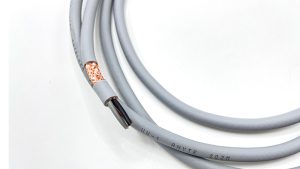
II. Key Features of Silicon Cables
A. Temperature Resistance:
- They can withstand a wide range of temperatures, from -60°C to 200°C, making them suitable for use in extreme environments.
- This high temperature resistance makes silicon cables ideal for applications where exposure to heat is a concern, such as in industrial machinery, automotive systems, and aerospace equipment.
B. Flexibility:
- They are highly flexible, even at low temperatures, allowing for easy installation in tight spaces or around corners.
- This flexibility also reduces the risk of cables becoming damaged or breaking during installation or use, ensuring a longer lifespan for the cables.
C. Chemical Resistance:
- They are resistant to a wide range of chemicals, oils, and solvents, making them ideal for use in industrial environments where exposure to these substances is common.
- This chemical resistance helps to protect the cables from damage and ensures their longevity in harsh conditions.
D. Electrical Insulation:
- Silicon cables provide excellent electrical insulation properties, preventing electrical current from leaking and ensuring safe and reliable performance.
- This insulation also helps to protect the cables from damage caused by electrical faults or overloads, reducing the risk of electrical fires or other hazards.
E. Weather Resistance:
- They are resistant to UV rays and weather conditions, making them suitable for outdoor use in all types of climates.
- This weather resistance helps to protect the cables from damage caused by exposure to sunlight, rain, snow, and other environmental factors, ensuring their longevity in outdoor applications.
The key features of silicon cables make them a versatile and reliable choice for a wide range of applications, including industrial machinery, automotive systems, aerospace equipment, and outdoor installations. Their temperature resistance, flexibility, chemical resistance, electrical insulation, and weather resistance make them an ideal solution for demanding environments where other types of cables may fail.
III. Benefits of Using Silicon Cables
A. Durability: They are known for their exceptional durability, able to withstand harsh environmental conditions and mechanical stress. This durability translates to a longer lifespan for the cables, reducing the need for frequent replacements. This benefit is particularly valuable in industries where downtime due to cable failure can be costly and disruptive.
B. Safety: One of the key advantages of it is its flame-retardant properties. They have a high resistance to flames and do not propagate fire easily, making them ideal for use in environments where fire safety is a concern. Additionally, silicon cables do not emit harmful gases when exposed to fire, further enhancing safety in hazardous environments.
C. Performance: They offer excellent performance across a range of parameters. They have a high temperature resistance, often able to withstand temperatures from -50°C to 200°C or even higher, depending on the grade of silicon used. This makes them suitable for use in applications where extreme temperatures are encountered, such as in industrial ovens or automotive engines. They also offer good flexibility, allowing for easy installation even in tight spaces. Their electrical insulation properties are also exceptional, ensuring safe and reliable performance in electrical applications.
D. Versatility: They are highly versatile and find applications in a wide range of industries and environments. They are commonly used in the automotive industry for wiring harnesses, sensors, and other electronic components. In the aerospace industry, they are used in aircraft wiring due to their high temperature resistance and reliability. They are also used in industrial settings for their durability and performance, and in renewable energy applications such as solar panels and wind turbines due to their weather resistance and longevity.
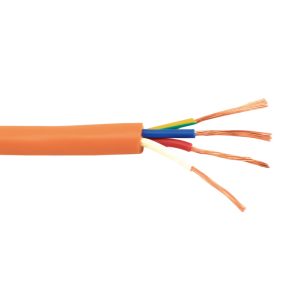
IV. Applications of Silicon Cables
A. Automotive Industry:
- Wiring Harnesses: They are used in wiring harnesses for their temperature resistance, flexibility, and durability, ensuring reliable performance in the harsh conditions of vehicle engines.
- Sensors: They are used to connect various sensors in vehicles, such as temperature sensors, pressure sensors, and speed sensors, due to their excellent electrical insulation properties.
- Electric Vehicles (EVs): Silicon cables are increasingly used in electric vehicles for their high temperature resistance and ability to withstand the demands of high-power electric systems.
B. Aerospace Industry:
- Aircraft Wiring: They are used in aircraft wiring systems for their ability to withstand extreme temperatures and environmental conditions, ensuring reliable performance in critical aerospace applications.
- Avionics: They are used in avionics systems, including communication systems, navigation systems, and flight control systems, for their high reliability and long service life.
C. Industrial Applications:
- Machinery and Equipment: Silicon cables are used in various industrial machinery and equipment, such as manufacturing machines, robots, and control systems, for their resistance to oils, chemicals, and abrasion.
- Power Distribution: They are used for power distribution in industrial settings, providing reliable and efficient transmission of electrical power.
D. Renewable Energy:
- Solar Panels: They are used to connect solar panels to inverters and other components in solar power systems, offering weather resistance and long-term reliability in outdoor environments.
- Wind Turbines: They are used in wind turbines for their ability to withstand the mechanical stresses and environmental conditions experienced in wind power applications, ensuring reliable power generation.
E. Medical Devices:
- Medical Equipment: They are used in various medical devices and equipment, such as diagnostic equipment, patient monitoring systems, and surgical instruments, for their biocompatibility and reliability.
- Healthcare Robotics: They are used in robotics used in healthcare settings for their durability, flexibility, and resistance to sterilization processes.
F. Consumer Electronics:
- High-Temperature Applications: Silicon cables are used in consumer electronics for high-temperature applications, such as in ovens, stoves, and other household appliances.
- Audio Equipment: They are used in audio equipment, such as headphones and speakers, for their flexibility and durability.
G. Telecommunications:
- Data Centers: They are used in data centers for their high-speed data transmission capabilities and reliability, ensuring uninterrupted communication networks.
H. Military and Defense:
- Military Equipment: They are used in military equipment and vehicles for their durability, reliability, and resistance to extreme conditions, ensuring mission-critical operations.
I. Robotics and Automation:
- Industrial Robots: They are used in industrial robots for their flexibility, durability, and resistance to abrasion, ensuring reliable performance in automated manufacturing processes.
J. Marine and Offshore:
- Marine Applications: They are used in marine environments for their resistance to saltwater, UV radiation, and extreme temperatures, ensuring reliable operation in offshore installations and marine vessels.
V. Conclusion
A. Silicon cables offer a wide range of key features and benefits that make them an ideal choice for various industries and applications. Their exceptional flexibility, heat resistance, durability, and chemical resistance make them suitable for use in demanding environments where other cables may fail. Additionally, their high temperature resistance, excellent electrical insulation, and weather resistance ensure reliable performance in a variety of conditions.
B. It is crucial to choose the right cable for specific applications based on their unique properties. Understanding the key features and benefits of silicon cables can help industries make informed decisions when selecting cables for their projects. By choosing the right cable, industries can ensure efficient and safe operations, reduce downtime, and improve overall productivity.

